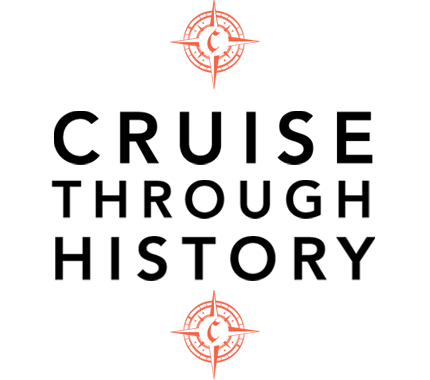Sitting home in imposed dry dock and self-imposed quarantine, I have the opportunity to view the crisis hysteria in the US and learn the latest from Washington and Wall Street. The following are reflections in a time of heightened fears, distrust of Washington and prejudice toward travel and cruise travel. A dose of rational action is the healthy option.
First, to the six hundred and fifty guests, plus crew and officers of the Oceania Insignia who disembarked with me on March 15, all then healthy, may you arrive home safely and in good health. The ship was a floating example of what is possible when rational action to maintain high standards of cleanliness and health is in practice. My hope is that active life will quickly resume. A cruise remains a great means to see the world, extending the possible for many, in a safe, comfortable, healthy environment.

Today, 1,500 companies dialed into a call with the White House and Wall Street. Key takeaways were:
– 50% of Americans (150 million people) will contract the virus before it runs its c0urse. In Germany, 70% of the population will contract the virus.
– The virus is likely in cold weather climates and is seasonal, like colds and flu.
– 80% of those infected will be mild stage, stay at home and rest. 5% will be critical care, weighted toward elderly and patients with respiratory issues.
– Global GDP growth will likely be 2% for the year. China will recover economically in six months. Most markets will recover in the second half of the year. Most analysists see market impact to resemble 9/11 short term impact, rather than the 2008 long term recession.
Yesterday NPR interviewed the head of a retail grocer’s association. He indicated that most market items, not including fresh fruit and veg, were produced in the US. There is no shortage of grocery items now, or to be seen in the coming weeks. He termed “high market demand,” a personal decision. He refrained from calling it panic purchasing.
In south Florida, water, toilet paper and breakfast cereal are gone from shelves. According to the experts, over-stocking is unnecessary. My advice to people staring at a living room full of water bottles, in a county where tap water is as good as it gets, is: drink it. Be healthy. Do not just stare at the stacks. Drink up and be healthy.
It is sobering to know that coronavirus is not new. This is the root virus of SARS, which killed 800 people around the world in 2002. The virus has proliferated among animal species. We now see the effects of spreading to humans in a virulent strain on a mass basis. Immunization can dull effects, not prevent new strains. Still dulling effects and shortening hospital stay is valuable.
It is popular in the US to blame Washington for late action. Britain takes a different view. The Economist this morning reports that British health officials see reacting too early to the flow of flu across the globe raising a concern with “compliance fatigue.” That is, reacting too soon and emerging from quarantine ahead of arrival of the wave of virus.
Meanwhile, as cruise ships scramble to find harbors, airplanes sit on the tarmac. Hotels and restaurants are closed. Universities are closed for the term. This is an immediate and short-term response to a larger issue. Flu comes every year. Triage response is not a fix.

Recently, while on the deck of a cruise ship, a small boat of locals floated by yelling go away virus people. Ninety percent of their small port town depends on tourism income. Ending tourism in many small towns around the globe will devastate local economies.
Colds and flu proliferate every year. Cure is not likely possible. Managing issues of world health is possible. Catherine the Great, who set an example by being publicly vaccinated against small pox, looked east each year to influx of plague and sought to close travel. If anything was learned this year, ceasing travel is not an option for annualized execution.
Chinese people enjoy travel as much as people around the world enjoy traveling to China. Such travel should not be avoided. Early response to flu containment is a rational option.
Implementation of two workable steps would help. First, airports and cruise ports around the globe should implement the Japanese decade-long operational decision to temperature test arrivals. On my recent flight home from Rio, I was selected to have my baggage searched in a safety check. No one checked my temperature. That takes seconds.
Second, like the ship’s flag flown a century ago to denote a ship with plague, a green cross flown on ships today, including cruise ships, to denote the general population does not have flu, would enable a welcoming reception at the pier. Ports need not close to healthy ships. In fact, cruise ships have a level of cleanliness and health monitoring not possible in hotels, university campuses and other places of high population density.

I share the sentiment of most passengers on cruise ships that cruise travel is preferable to air/hotel travel. Air travel is a necessary hurdle to arrive in an embarkation port. Foreseeable are more cruise itineraries round trip from major cruise port cities.
The wish for all of you is that you take care of your health, be well and travel soon and often. At the heart of the travel experience is knowledge of the world, unfiltered in all its reality. For those for whom virtual reality is not a life well-lived, may you cruise often.
Yours truly, until we set sail again!
Sherry
If you want to learn more about Sherry Hutt’s adventures check out one of her books on Amazon.com







